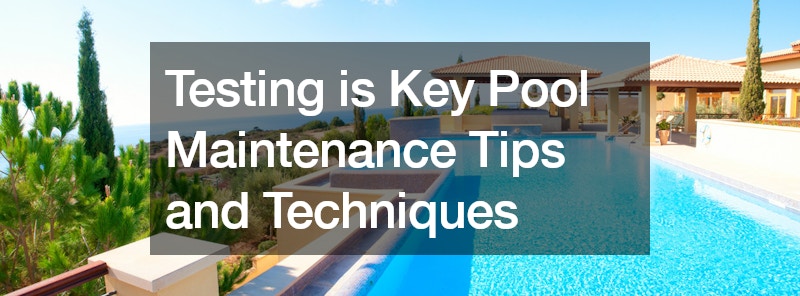
If you’re a new pool owner, it’s important to learn how to take care of your investment so that you keep it safe and get the best results out of getting it. Your swimming pool builder will generally provide you with lots of helpful information, but it’s always good to do some research and learn more about your pool. The builder may tell you about types of pool systems at the point of building a pool for your home, ensuring that you know the basics of maintenance for each. Once you settle on one, it’s best to take charge and learn about the rest of the details in your own time.

You can start by finding out how to balance a newly filled pool, something that you should ideally have a professional do at the beginning. You should know the proper pool water level at all times so that you don’t go above or below it and cause issues. For this, search online for “how high should your pool water be?” so that you can keep it at the best level. This and regular cleaning and maintenance should give you a great many years of satisfactory pool life, helping you avoid breakdowns and accidents.

Homeowners fortunate enough to have a pool know just how joyful it is to return home and swim in your very own aquatic space. Especially during those hot summer days, pools provide a source of comfort that in many ways is unmatched.
Still, homeowners with pools also know just how much work it takes to get full use out of the pool — or, for that matter, to be able to safely use it at all! Neglecting to take care of your pool can cut its usability by half. Like anything else in a household, pools need to be consistently maintained. Pool maintenance can be tricky since there’s so much to take into account. In order to help any pool owners out there with pool sanitization and other upkeep responsibilities, here are three tips to keep in mind:
- Test, Test, Test: Perhaps the most important tenet to follow is to constantly check the pool water’s quality. The water should be checked at least once a week. Specifically, you should check for qualities such as the pool’s acidity, temperature, and Langelier stability index (LSI). The pool’s pH levels should be between 7.2 and 7.8, although it is ideal to have it between 7.4 and 7.6. The perfect temperature for pool water is about 78ºF. A pool’s LSI (which indicates the calcium carbonate stability of the water) should be between -0.5 and +0.5.
- Clean Your Pool Filters: Pool filters remove all the debris and harmful material in the water. They should be checked at least every four months or when the filter pressure gauge reaches eight pounds — whatever comes first.
- Back to Chemistry Class: You don’t have to go back to chemistry class of course (unless you want to), but the pool water’s chemistry is key. The same balance levels and chemical types are required for pools of all sizes, whether they are 1,000 gallons or 1,000,000 gallons. Be sure to get the proper pool cleaners to keep your pool healthy.
For more information about what kind of pool cleaners to use, what kind of pool filters to buy, and other queries, feel free to leave a comment at the bottom.
